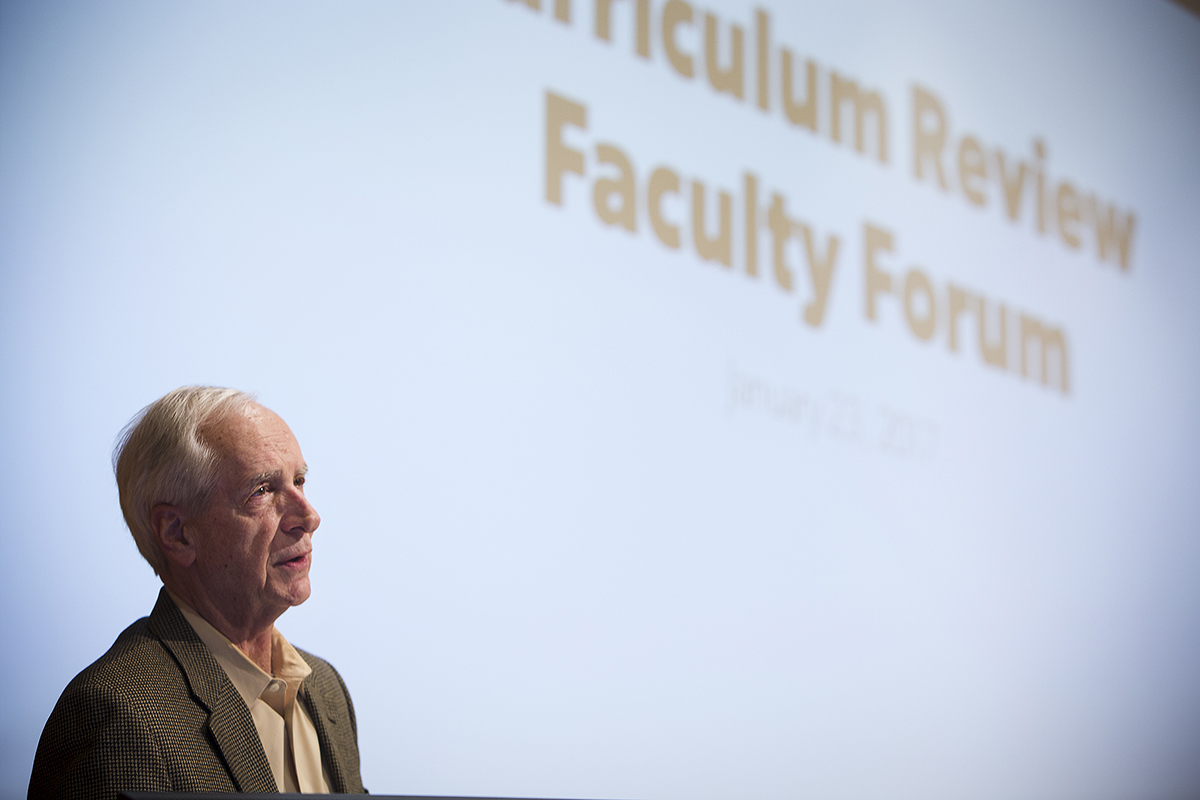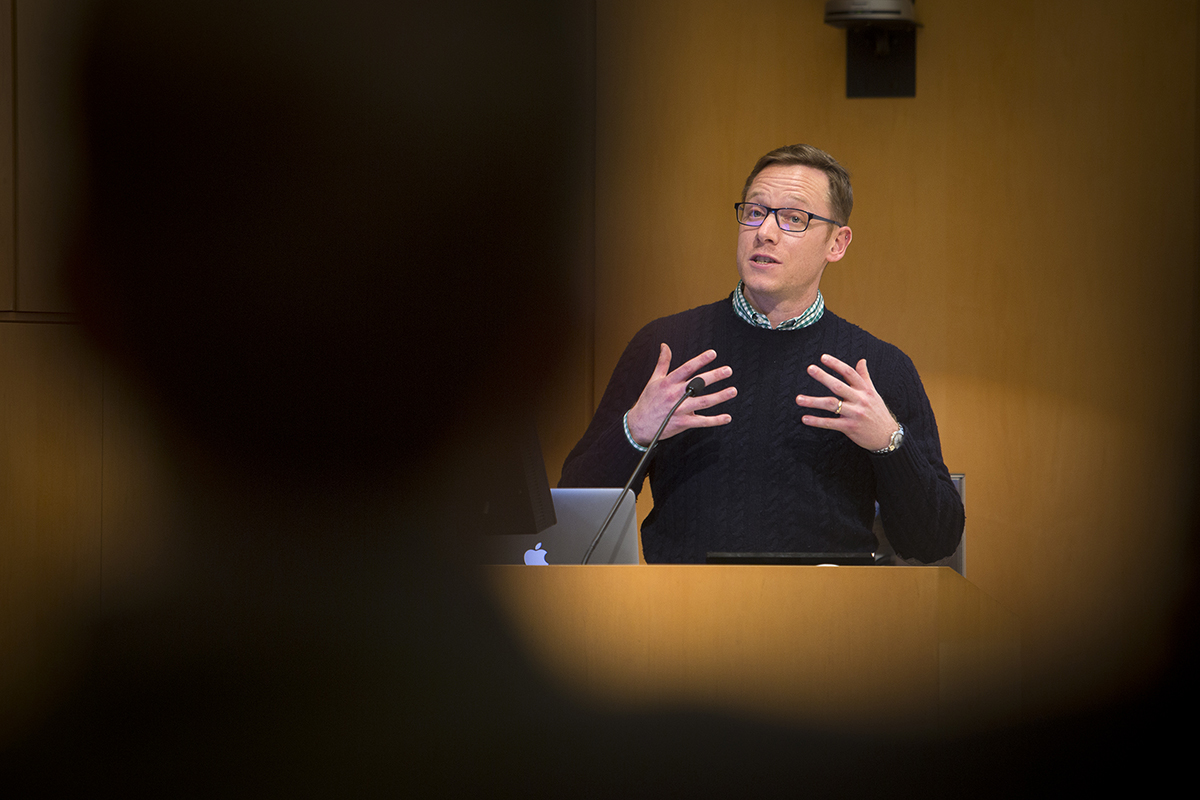Faculty discuss curriculum changes in Arts and Sciences
By Linda B. Glaser

“The curriculum belongs to the faculty, 100 percent,” declared Interim President Hunter Rawlings at a faculty forum Jan. 23 in the Rhodes-Rawlings Auditorium in Klarman Hall. “This is a principle that is essential at every university.”
The forum, attended by about 150 faculty members, was held to discuss curriculum reforms being explored by the College of Arts and Sciences, including discussions about the mission of a liberal arts and sciences education today and the ways in which graduation requirements reflect and support that mission.
“The question of what a student should know is fraught with intellectual, ethical and cultural complexity,” said Rawlings, who also is a professor of classics. “[The College of Arts and Sciences] is particularly important in this respect because it has most of the core departments of Cornell University. … It is the college that is central to the curriculum and to the identity of the university as a whole. That is why I think it is so important for this college to address this as well as it possibly can and as seriously as it possibly can.”
Gretchen Ritter '83, the Harold Tanner Dean of Arts and Sciences, said it is historically and socially a good time to be asking questions about the curriculum: “One of the most important things we do is to educate students. How can we help them to be scientifically literate, ethically oriented, able to navigate a changing world, and able to contribute to large-scale problems that we’re facing, whether around climate change or social inequality?”
Over the last semester, the Arts and Sciences Curriculum Reform Committee (CRC) conducted extensive outreach to solicit feedback through collegewide meetings and focus-group conversations. The curriculum liaison group, made up of representatives from all of the college’s departments and programs, held discussions within departments and programs. Other groups of faculty, particularly the humanities chairs and members of the arts and humanities task force, have also been exploring curriculum ideas. More than 300 faculty members and students have participated in these conversations.
Based on this feedback, the CRC drafted essential components and three evolving frameworks, while the liaison group drafted “Principles of a Liberal Education.”
The CRC will now begin developing a proposed framework for a new college curriculum – including principles, goals and an overall statement of requirements – which they hope to present for feedback by the end of February. Their goal is to have a final framework ready to bring to a faculty vote by the end of the spring semester, although more work will be done over the 2017-18 academic year to specify and implement the new curriculum framework.

“The committee has been unbelievably productive and busy,” said Ritter. “I am impressed by the level of faculty engagement and encouraged by the commonality we see emerging from the different groups.”
At the forum, Thomas Pepinsky, associate professor of government and chair of the CRC for the spring semester, reviewed the “Principles of a Liberal Education” document. Kim Weeden, chair of the Department of Sociology and the Jan Rock Zubrow ’77 Professor of the Social Sciences, laid out four points of potential alignment in the proposals for a new curriculum, including support for foundation courses and interdisciplinary explorations. Charles Aquadro, the Charles A. Alexander Professor of Biological Sciences, and Derk Pereboom, the Susan Linn Sage Professor in Philosophy and Ethics and the Stanford H. Taylor ’50 Chair of the Sage School, outlined two potential foundational courses for the new curriculum.
“We’re working together to create a curriculum that we can all agree on and be enthusiastic about,” said Pepinsky.
Linda B. Glaser is a staff writer for the College of Arts and Sciences.
Media Contact
Get Cornell news delivered right to your inbox.
Subscribe